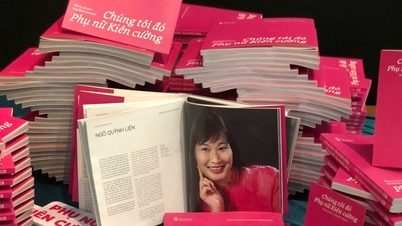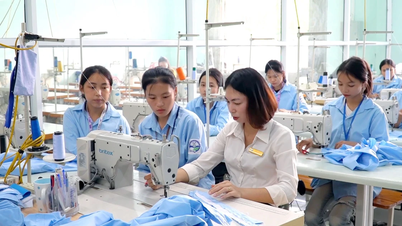
Families take their children to the beach in Sokcho, South Korea - Photo: AFP
The Korea Herald newspaper, citing data provided by the Korea Statistics Agency (KOSTAT), said the number of men citing childcare as a reason for not participating in the economy in 2023 was about 16,000, up 37.4% from about 12,000 the previous year.
This is the highest level ever since KOSTAT first compiled data in June 1999.
The number of stay-at-home fathers has also increased steadily, from 6,000 in 2013 to 9,000 in 2019, and reaching 13,000 in 2021.
The near-tripling increase in just a decade is seen as being driven by expanded paternity leave and an improved perception that men also have to care for children.
By age group, there were about 8,400 people, or 53.3% of the total, in their 40s who were full-time fathers. The figure for those in their 30s was 4,600 people, or about 28.8% of the total.
Meanwhile, the number of women who do not worry about finances because of childcare has decreased. Specifically, there are about 840,000 people in 2023, equivalent to a decrease of 14.7% compared to 984,000 people the previous year.
The number is falling as more women continue to work after giving birth, falling from 1.47 million in 2013 to 1.26 million in 2017.
Because South Korea has a low birth rate, the proportion of the population, both male and female, who are economically inactive due to childcare needs also decreases.
The total fertility rate (TFR - understood as the average number of children a woman will have during her lifetime) of the whole country will decrease to 0.72 in 2023.
South Korea is looking to raise its birth rate. On February 21, the Ministry of Gender Equality and Family announced a series of measures to address the low birth rate, including supporting childcare services for dual-income families and subsidizing some of the childcare costs.
The Ministry of Gender Equality is also piloting an emergency childcare service, allowing parents to register up to two hours in advance, to deal with workplace emergencies.
"Germany and Sweden have seen their birth rates rise again thanks to finding a balance between work and family," said Minister Kim Hyun Sook.
“The foundation for addressing low fertility rates can be achieved by promoting a family-friendly environment where men and women work and care for children together, to reduce the burden of childcare.”
Source






![[Photo] Binh Trieu 1 Bridge has been completed, raised by 1.1m, and will open to traffic at the end of November.](https://vphoto.vietnam.vn/thumb/1200x675/vietnam/resource/IMAGE/2025/10/2/a6549e2a3b5848a1ba76a1ded6141fae)

































































































Comment (0)